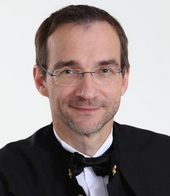| 21-10-2021 | The contribution of digitaization to sustainable mining | Philipp Hartlieb |
| 28-10-2021 | Europe's supply of mineral raw materials for the Green Deal | Frank Melcher |
| 04-11-2021 | Carbon Capture and Utilization (CCU) - Potential and challenges | Markus Lehner |
| 11-11-2021 | Recyclability and how the EU project C-PlaNet contributes? | Roland Pomberger |
| 18-11-2021 | Renewable energies in developing and emerging countries | Matthias Hahn |
| 25-11-2021 | Hydrogen & e-Fuels: Sustainable fuels for the future? | Jürgen Rechberger |
| 02-12-2021 | ReOil – Recycling technology for used plastics | Wolfgang Hofer |
| 09-12-2021 | District Cooling | Georg Geißegger |
| 16-12-2021 | Nutrients and nutrient recovery | Markus Ellersdorfer |
| 13-01-2022 | Re-purposing of Coal Power Plants - important building blocks of the energy transition | Thomas Kienberger |
| 20-01-2022 | Archduke Johann and the mining industry in and around Leoben | Peter Kneissl |
Europe is extremely dependent on imports of a large number of raw materials. In order to secure the EU as a high-tech location and to guarantee its competitiveness in the future, this dependence must be reduced as a matter of urgency. This requires rethinking all processes of traditional mining and revolutionizing them using breakthrough innovations and novel "Industrial Internet of Things" (IIoT). This lecture will provide an overview of the technological developments related to the digitalization of individual aspects of the mining process chain and derive how this technological progress can lead to a better and more sustainable exploitation of the given deposits, and thus to a more sustainable mining industry. The aspects discussed range from blasting technology to fleet control and geotechnics.
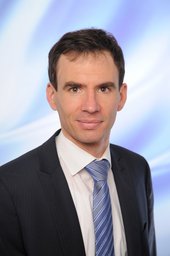
Dr. Philipp Hartlieb is Senior Scientist at the Chair of Mining Science at the Montanuniversity of Leoben. His research focuses on sustainable and environmentally friendly mining technologies, mainly in the field of mechanical mining, as well as drilling and blasting, with the aim of reducing energy consumption and the environmental impact of mining. Among his activities are also projects on digitalization of mining, raw material policy, education, and extra-terrestrial mining.
The energy transition is also a raw materials transition. We will need a large amount of mineral raw materials for this, which are currently not yet in the raw material cycle and for which we have only small secured reserves. The lecture will highlight forecasts of the future demand for mineral raw materials in order to meet climate targets (especially using the example of electromobility), as well as the possibilities for the origin of these raw materials. This also against the background of the discussions about critical raw materials and the role of China in the supply of the EU.
In addition to the avoidance and long-term storage (CCS) of anthropogenic CO2 emissions, the utilization of CO2 for the manufacture of usable products is being discussed as a possibility for reducing greenhouse gas emissions. The associated technologies are summarized under the term "Carbon Capture and Utilization" (CCU). Initially, CO2 is usually extracted either from a concentrated point source, e.g. the exhaust gas from a cement plant, or directly from the air. After this "carbon capture" step, it is then converted into usable products in chemical-catalytic or technical-biological processes. The range of possible products is basically broad and extends from basic chemicals, such as methanol, to fuels, plastics and building materials. However, the mere use of CO2 as a raw material does not mean that there is always a negative CO2 balance. In addition, CCU technology faces a number of technical and regulatory challenges. The future significance for the reduction of greenhouse gas emissions cannot be accurately predicted at present.
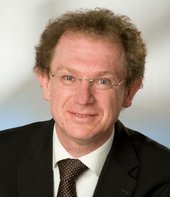
Markus Lehner studied process engineering at the Technical University of Munich. He received his doctorate from the Chair of Thermodynamics at the TU Munich on waste gas purification in waste incineration plants. He began his industrial career as a project engineer in plant engineering at RVT Process Equipment GmbH, which at that time was still called Rauschert Verfahrenstechnik GmbH. Most recently, he was responsible for sales, design and engineering at this company and was instrumental in establishing the Asian business and a branch office in China. Since 2010, he has headed the Chair of Process Engineering for Industrial Environmental Protection and is intensively involved in the use of CO2 as a raw material, chemical-catalytic processes for the production of renewable hydrocarbons and the chemical recycling of plastic waste.
Recyclability of products is a core element of the circular economy. Only if products are designed to be recyclable can they also be processed into secondary raw materials/recyclates and then used to create new products. Today, more and more products advertise with the attributes "recyclable" or "compostable", thus signaling special environmental compatibility to consumers. From a waste management perspective, it is fair to ask whether these products are really recycled and how they behave in our REAL waste management system. Unfortunately, upon closer inspection, many promises evaporate into thin air. Recyclability often refers only to the material that could theoretically be recycled. However, this does not mean that the material is actually recyclable.
In the EU project C-PLANET, the environmental compatibility and behavior in real waste management systems is already being investigated during the development of new plastics. Truly recyclable products are the goal of this European research.
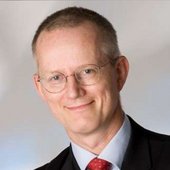
"Waste is the raw material in the wrong place" that is the motto of the professor for waste utilization technology at the University of Leoben. After 20 successful years in the private waste management industry, Univ. Prof. DI Dr. Roland Pomberger moved to the Institute for Sustainable Waste Management and Waste Disposal Technology in Leoben. The institute's accredited laboratory specializes in waste analysis and supports research projects in the fields of recycling, landfill technology and remediation of contaminated sites. As a service provider, the laboratory is also available to partners in private and municipal waste management and industry for waste analyses. One of Professor Pomberger's special fields is the development and use of substitute fuels and special recycling processes. Further focal points of the chair's research are: Waste Mineralogy and Pollutant Mobility, Plants of the Future (ReWaste4.0) and Sensor-based Sorting, Critical Raw Materials in Waste, Recycling and ReUse of Lithium-Ion Batteries, Safety in Waste Management.
The future lies in sustainable energies. For Western countries, the path is clear: out of hydrocarbon-based technologies. But what about countries whose average monthly income is below the daily wage in Austria? What is possible, where are the problems and where are we Europeans perhaps living in an idealistic bubble? In this lecture, Engineers Without Borders Austria - Regional Group Leoben addresses these questions. With a holistic view with possible solutions and already used technologies on site, this lecture shows not only what is already practically used or what would be possible, but also leaves open questions to which the engineers of the future must find answers.
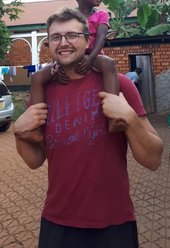
Matthias Hahn is a student at the University of Leoben in the Master of Geotechnics/Tunneling and Applied Geophysics. He gained his first experience in development cooperation (DC) after his education at the HTL Steyr with the project "Mochilla de Esperanza" in Lima/Peru. Since mid-2018, he has headed the Leoben regional group of Engineers Without Borders Austria. In July and August 2021, the Mühlviertel native was in Biharamulo/Tanzania with his team of 4 Leoben-based mining engineers to implement their KaMa project.
Hydrogen and e-fuels are considered fuels for sustainable mobility. e-fuels can be produced from carbon dioxide and water, but which technologies are available for this and in which areas will they be used? What is certain is that the production of hydrogen and CO2-neutral e-fuels requires large amounts of energy, which must come from renewable sources. This will make the availability of hydrogen and e-fuels largely dependent on the cost of renewable electricity.
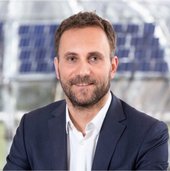
Jürgen Rechberger, a native of Styria, graduated with a master's degree in Industrial Engineering from the Vienna University of Technology in 2003. Since 2004 he has been working in the fields of fuel cells, hydrogen and power-to-X at AVL, since 2021 as Vice President of the Hydrogen and Fuel Cells Business Unit. He is author or co-author of numerous publications, conference papers and patents. In addition to serving as an advisor to the Austrian federal government, he is, among other things, co-author of the Austrian Hydrogen Strategy.
The innovative process of ReOil® converts post-consumer plastics under moderate pressure and normal refinery operating temperatures into so-called synthetic crude oil. This synthetic crude oil is then converted via the Refinery and Petrochemical assest to produce virgin polymers. One particular advantage of this synthetic crude oil is its low content of heavy components. Another advantage is a shorter logistics route of this syncrude in comparison with conventional crude oil. Since 2009, OMV Downstream has been researching ways to harness the highly interesting resource potential of used plastics. After an intensive but unsuccessful screening of available process technologies, the ReOil® process was developed. It is based on thermal cracking, a proven refining technology, whereby long-chain hydrocarbons are cracked into shorter-chain light hydrocarbons. This unique process utilizes a solvent to decrease the viscosity of the plastics feed and to improve the heat transfer and, is currently patented in Europe, USA, Russia, Australia, Japan and many other countries. Currently OMV operates a Pilot Unit with a capacity of around 100 kg/h since 2019 in a 24/7 mode. This Unit is fully integrated into the refinery Schwechat/Austria and already succeed over 12.500 cracking hours. The planning for the upscale for the next pilot are ongoing.
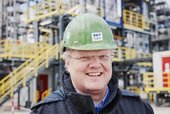
Wolfgang Hofer holds a MS degree for mining and mine surveying from the Montanuniversity Leoben/Austria. For more than 20 years, he has been involved in many upgrading and optimization projects in all refineries of OMV as a project manager in the project definition phase, with project scopes up to 1 billion, coordinating/coaching multicultural teams on various locations. He has a broad experience in all different “classical” refinery processes as well in innovative approaches. Since 2011, he leads the new technology group in the Refinery Innovation Department of OMV. The main tasks are the enlargement hydrocarbon based feedstock for Refining (e.g. anthropogenic residues, Bio-waste) as well as CO2 conversion and upgrading to advanced fuels. He is the mastermind of the ReOil® technology, which was his first innovation project. Currently he is since 2018 technical Advisor at the Plastic to Oil group, to develop the business and the roll out
According to experts, in twenty years Europe will need about as much cooling energy as heating energy. On the other hand, energy consumption is expected to fall. In order to create a climate-friendly cooling option, Wien Energie is focusing on the expansion of district cooling. The modern technology, which turns heat into cold, among other things, saves up to 70% of energy consumption and 50% of CO₂ emissions compared to conventional air conditioning systems.
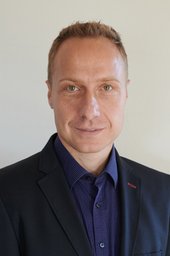
Georg Geißegger has been Head of Department for Customer Plant Engineering at Wien Energie since 2012. In 2007, he completed his master's degree in „Umwelt- und Bioressourcenmanagements“ at the University of Natural Resources and Applied Life Sciences in Vienna and has been passing on his versatile knowledge as a lecturer for "Ventilation, Air Conditioning and Refrigeration Technology - Specialization" at the FH Burgenland since 2008.
The sustainable supply of nutrients will play an increasingly important role in the production of plants and food in the future. Currently, the intensive use of industrially produced fertilizers is pushing the natural nutrient cycles further and further to their limits, which has a negative impact both in terms of environmental pollution of water and soil and on climate change. Although the primary production of nitrogen fertilizers is extremely energy-intensive and the raw material supply is considered critical in the case of phosphorus, large amounts of nitrogen and phosphorus are currently lost via the wastewater system. The recovery of these nutrients from wastewater can relieve both sides in the future and is currently the subject of numerous research projects.
The lecture presents the current situation of industrial fertilizer supply and wastewater treatment on the basis of natural nutrient cycles and shows possible solutions for the recovery of nitrogen and phosphorus from the wastewater system, which can pave the way to a cycle-oriented crop production
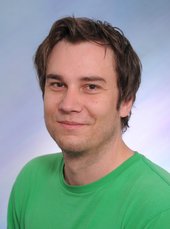
Markus Ellersdorfer is an assistant professor at the Chair of Process Engineering for Industrial Environmental Protection, where he works on the use of biogenic raw and residual materials and components derived from them in industrial processes. In addition to nutrient recovery and utilization of sewage sludge, the current focus of his work includes the extraction of sustainable fuels (GreenAmmonia, biocrude from microalgae and biowaste) and CO2 utilization by means of biobased processes (bio-CCU).
Re-purposing of Coal Power Plants - important building blocks of the energy transition (13-01-2022)
Thomas Kienberger
Electricity generation from coal currently covers 37% of global electricity consumption. Coal is thus the largest source of electricity generation, as it occurs almost everywhere. However, it is also the most carbon-intensive fossil fuel and thus responsible for 30% of global CO2 emissions. To achieve the goal of decarbonizing the energy system, it is therefore essential to replace today's coal-fired power plants with sustainable technologies. This so-called "coal phase-out" is currently being discussed or even already implemented in many EU countries. Austria has also been coal-free since spring 2020. But how can the electricity generated from coal power now be replaced and what does this mean for the coal-fired power plant?
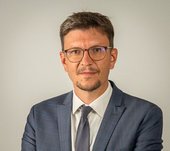
Thomas Kienberger has been Professor and Head of the Chair of Energy Verbund Technology at the University of Leoben since 2014. Expert for integrated energy systems in public space and industry. Main aspects of his research and teaching are interdisciplinary, systemic approaches to integrate renewables and to increase overall systemic energy efficiency. Since 2018 member of the steering group of the flagship region New Energy For Industry - NEFI and head of the NEFI_lab. Innovator and networker in the industrial landscape in Austria and beyond.
After Archduke Johann of Austria (1782 to 1859) was banned from the crown land of Tyrol due to rebellious activities, he turned to Styria. In 1822, he became wheel master in Vordernberg and acquired first Wheel Works II and subsequently also Wheel Works V. He succeeded in uniting the 14 Vordernberg wheelwrights, who had previously only acted individually, into a community that acted and acted together. At the same time, the Archduke also had the railroad constructed and built by Johann Dulnig for the transport of the ore mined at the Erzberg to Vordernberg for distribution to the wheel works there. In 1840, on his initiative, the Steiermärkisch - Ständische Montanlehranstalt was established in today's Raithaus, which was moved to Leoben in 1849 - the forerunner institution of the Montanuniversität Leoben
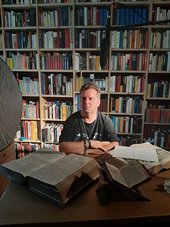
After attending elementary school in St. Peter - Freienstein, attended secondary school in Leoben and the HBLA for forestry in Gainfarn, Matura in June 1993. Studies of history and folklore at the Karl - Franzens - University Graz, Mag. Phil. in December 1998, Dr. Phil. in December 2002. Topic of the dissertation: Founding legends of the monasteries and abbeys of Austria founded until the year 1200. Worked at the Universalmuseum Joanneum from May 2003 to January 2016 and for the Montanmuseen Vordernberg from June 2017. Author of 30 scientific publications. In addition to mining history, also active in the field of legend and myth research, especially around the Salzburg Untersberg. Owner of his own private library with 5000 volumes, beginning with the year 1629. Lives and works in St. Peter - Freienstein

